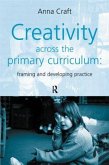Originally published in 1971. All education systems tend to be traditional and conservative. In times of rapid social change, the work of the schools becomes increasingly outdated by events. Continuous adaptation of the curriculum (which includes content, method and organization) can no longer be left to haphazard, piecemeal innovations-it must be managed. In a comparative study of the strategies adopted to date in the U.S.A., England, Scotland and France, this book points out that-although considerable reforms have been effected in these countries during the past ten to fifteen years-no adequate curriculum theory has yet been developed. The author also turns his attention to the phenomenon which he considered symptomatic of inherent failures in the education system: the drop-outs and hippies He concludes that notions about 'learning' must be revised and rather than a place in which formal instruction is given, the school of the future should be conceived as a resources-for-learning centre.
Hinweis: Dieser Artikel kann nur an eine deutsche Lieferadresse ausgeliefert werden.
Hinweis: Dieser Artikel kann nur an eine deutsche Lieferadresse ausgeliefert werden.








